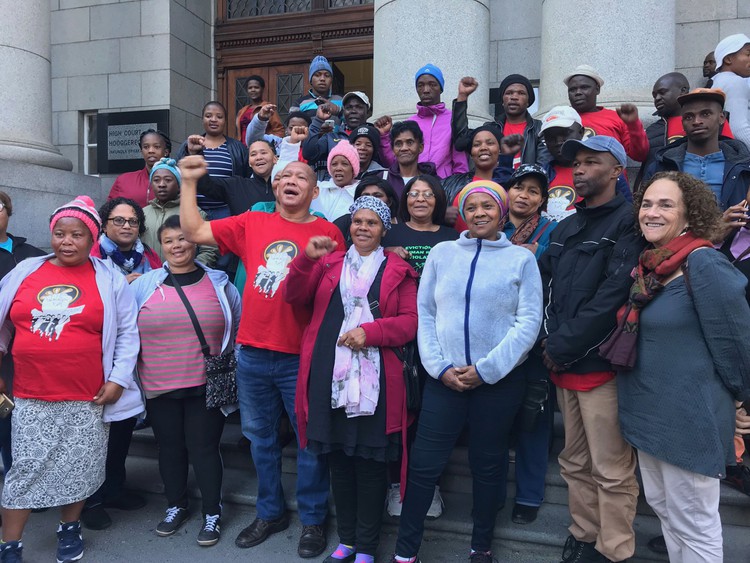Farm workers say Oak Valley housing arrangements are racist
But farm retorts that its living conditions are humane
Oak Valley Farm Estate and the Commercial Stevedore Agricultural and Allied Workers Union (CSAAWU) were in the Western Cape High Court, sitting as the Equality Court, on Wednesday.
About 40 farm workers attended the hearing. The workers want the Equality Court to investigate their housing conditions and the single-sex hostels they are living in on the farm.
The other respondents in the case are Boland Labour, a labour brokering company employing some of the workers on behalf of the farm, as well as soft-fruit suppliers and exporters Two-a-Day Group and Tru-Cape Fruit Marketing, whose shareholders include the owners of Oak Valley.
Judge Owen Rogers ordered both parties to make submissions by 10 September as to why the case should be heard in the Equality Court. The matter will then be heard on 17 September.
Bernice Erasmus, for Oak Valley, said the company contended that the hostel accommodation is more than decent and humane.
Asked by the judge if Oak Valley planned to improve the hostels, Erasmus said there are no plans to convert hostels into family units.
“What actually matters is property rights in section 26 of the Constitution. Our view is that we are lawfully providing single-sex accommodation, which is currently statutorily provided for in terms of section six of ESTA [Extension of Security of Tenure Act],” said Erasmus.
Addressing farm workers after the court hearing, Henk Smit, who argued their case, said, “There should be two or three rooms to share with your wives and children. The hostels should be converted. The architect is going next week to inspect the hostels.”
On 16 July farm workers ended a strike after more than two months of protesting for higher wages and an end to single-sex hostels.
In a statement on 20 August, CSAAWU said that the workers in the case are housed in male-only hostels, where they live in single rooms with up to four people in a room.
“All the workers are from the Eastern Cape, and they are not allowed to bring their families to live with them … The workers say that this housing arrangement is an infringement of their human rights as well as racist. Only black African workers are housed in hostels. All family housing units on the farm are allocated to coloured workers,” read the statement.
Support independent journalism
Donate using Payfast

Don't miss out on the latest news
We respect your privacy, and promise we won't spam you.
Next: Tensions between communities reach “boiling point” over electricity in Port Elizabeth
Previous: “Our area is over 120 years old but still we have no electricity, houses, and roads”
© 2019 GroundUp.
This article is licensed under a Creative Commons Attribution-NoDerivatives 4.0 International License.
You may republish this article, so long as you credit the authors and GroundUp, and do not change the text. Please include a link back to the original article.

